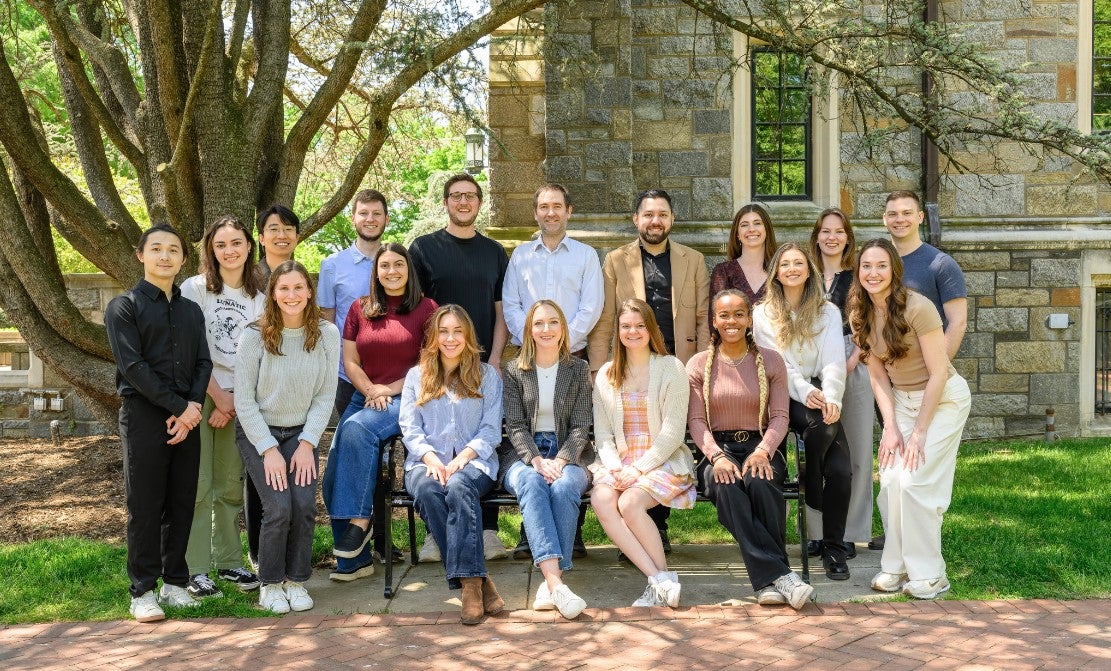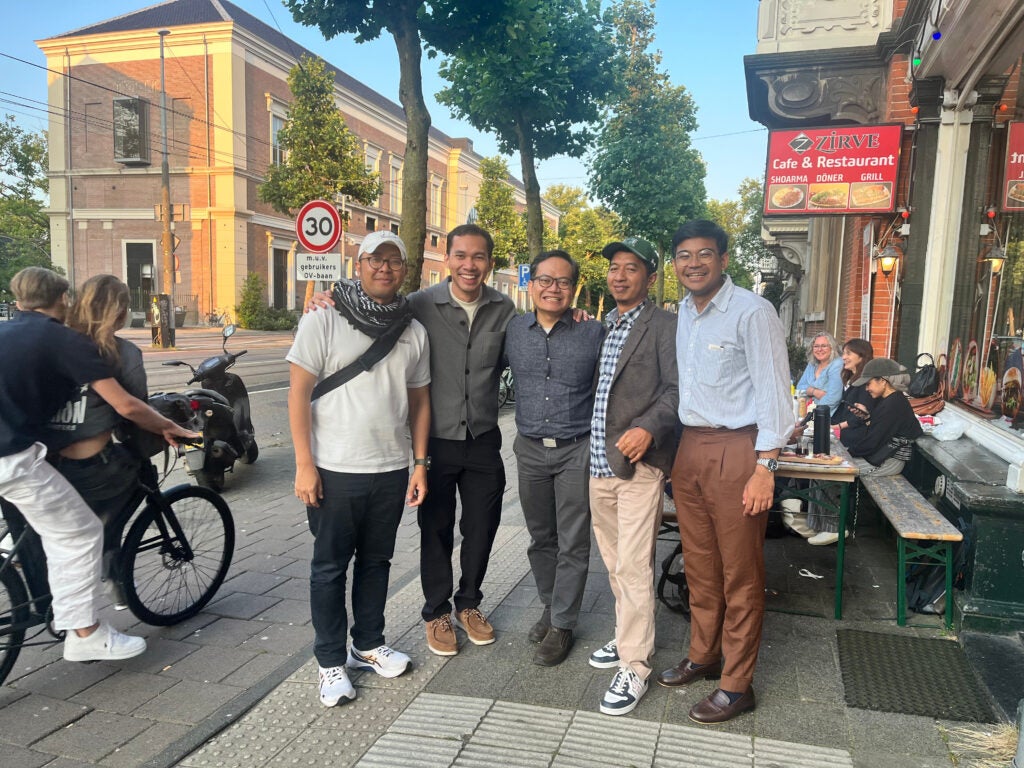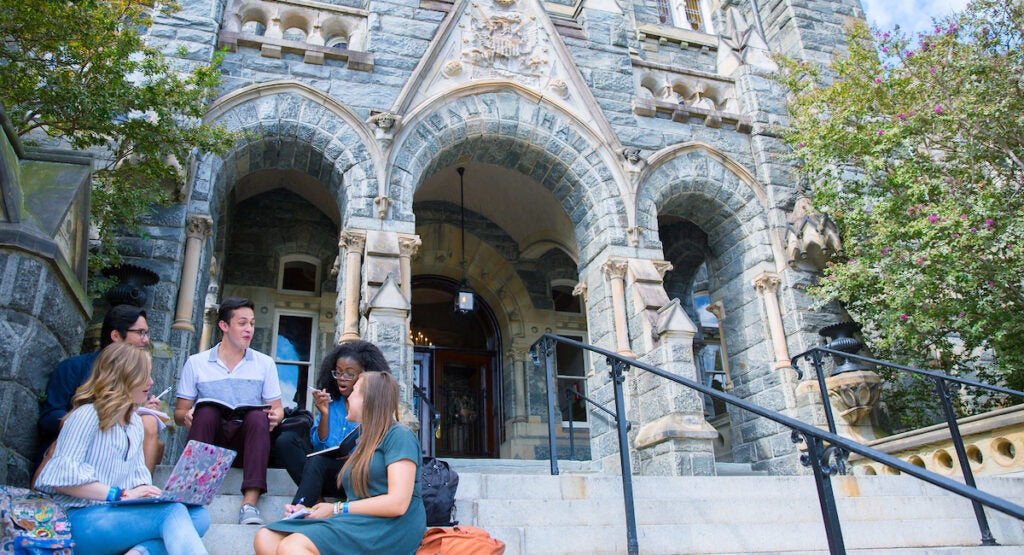Ever Experienced Math Anxiety? This Doctoral Student is Looking Into the Problem.
This is part four of four in the Graduate School’s summer series, which chronicles what Grad Hoyas are up to near and far this summer. Follow along on grad.georgetown.edu and on our social media channels.
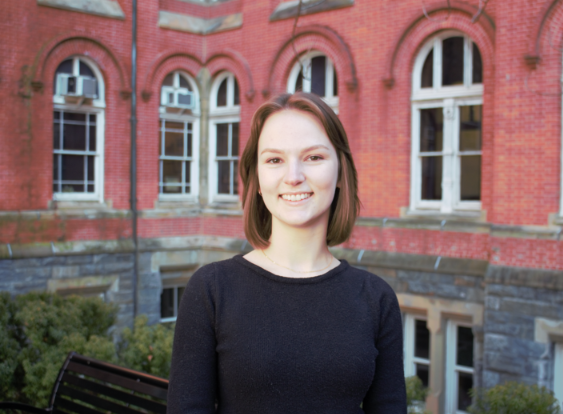
Cynthia Fioriti
Halfway through high school, Cynthia Fioriti (G’23, G’26) took her first psychology course. She has been hooked ever since and calls it a romantic pursuit of intellectualism.
“I am just a scientist at heart,” Fioriti says.
Fioriti works as a doctoral researcher in the Math Brain Lab at Georgetown under the direction of Ian Lyons on the study of math comprehension and anxiety, in early childhood and adult learners. Math anxiety is defined as the negative feelings associated with anticipating or completing math tasks.
Her initial career aspiration was to pursue clinical psychology focused on helping veterans. After doing a few years of work in the clinical space, she turned her attention toward research. Her interest in the practical applications of psychology is what ultimately led her to pursue a research career infused with public policy applications.
Fioriti feels that the dual Master of Public Policy and Ph.D. in Psychology program at Georgetown is the perfect match for her combination of interests.
“Georgetown’s program is really special,” Fioriti noted. “The opportunity to attend this program presented itself and seemed like a cool way to fuse the practical applications of my research together.”
This summer, Fioriti presented her findings on math anxiety at the International Mind, Brain, and Education Society (IMBES) conference in Leuven, Belgium, and at Gallaudet University in Washington, DC.
Explore Fioriti’s experience at home and abroad this summer, and the advice she’d give to anyone interested in psychology and public policy as a career.
Local & Global Connections
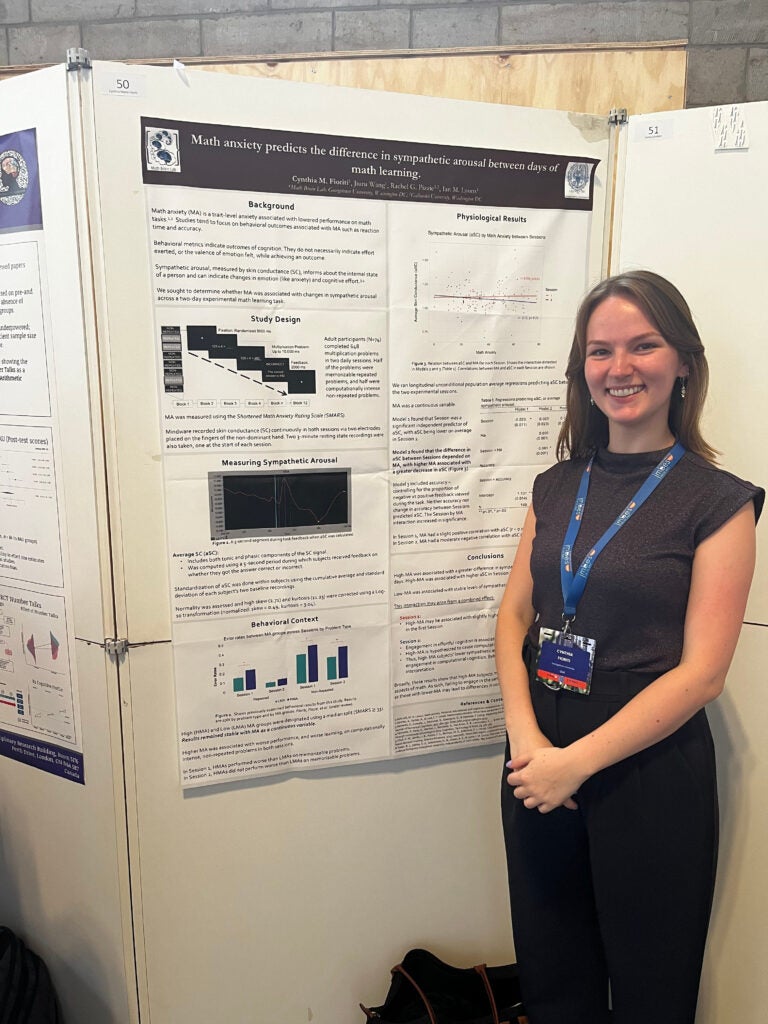
Cynthia Fioriti at IMBES research poster symposium
The IMBES conference is one of the major industry conferences in the study of math engagement, and Fioriti noted that this was the first year it had been hosted in a city outside North America: at KU Leuven in Belgium.
The conference only takes place every two years, so she felt incredibly lucky to participate in the research poster symposium. For two hours, she met and talked with people about her findings related to math anxiety in the Mind Brain Lab.
The goal of her work was to explore how people with different levels of math anxiety learn different types of math. The problems all retained the same structure, and over a period of two days, Fioriti tracked skin conductance (or sweating) of participants as they completed repeated and unrepeated math problems.
“Everyone has math anxiety at a certain level,” Fioriti noted.
Depending on the reaction of the nervous system during math learning, Fioriti can assess whether students are engaged or disengaged in the task. This, in turn, may help her when the Math Brain Lab shares their findings to encourage educators within a classroom setting to leverage certain techniques in order to modify students’ behavior and discourage apathy toward math.
After the poster session, Fioriti also attended other panels at IMBES and connected with peer researchers to pursue additional physio-research collaborations.
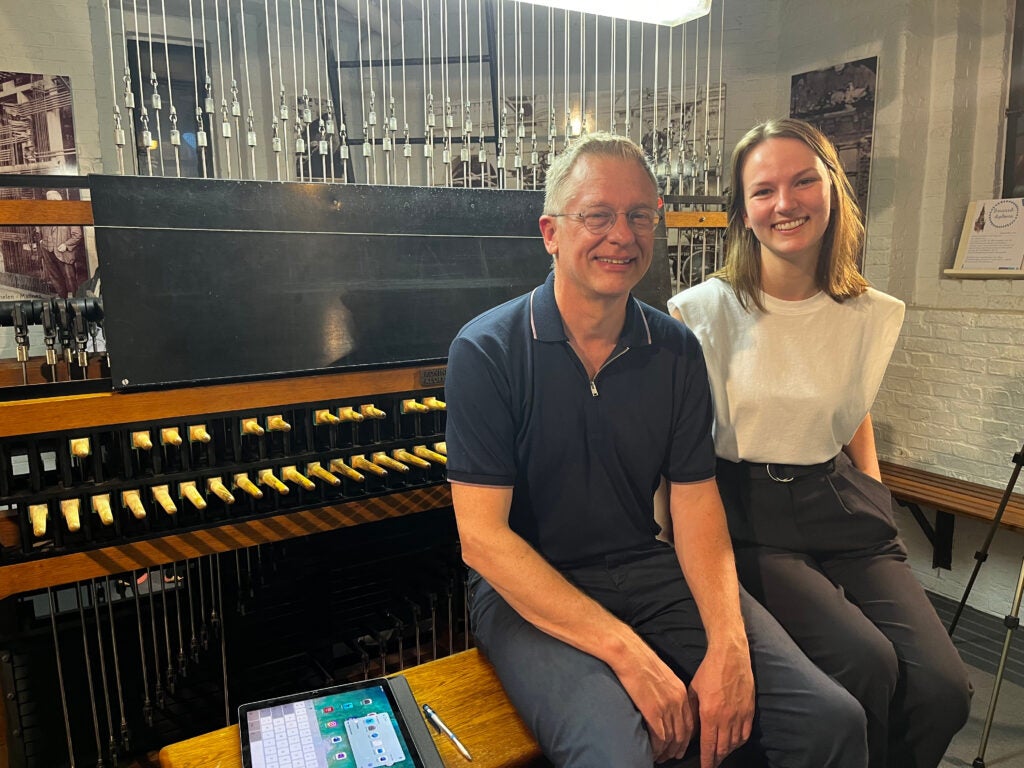
Fioriti and a carillon player in Belgium
She also took advantage of time to relax and explore Leuven, 20 minutes east of Brussels, and attended a carillon concert in one of the local bell towers.
In addition to IMBES, Fioriti and the rest of her cohort from the Math Brain Lab attended the Math Cognition and Learning Society Conference in June at Gallaudet University in DC. Fioriti noted that this conference was intimate and fun because everyone in attendance belongs to the field of math cognition.
In early August, Fioriti also traveled to Texas to complete a workshop on a physiological research technology called MindWare. This is a more recent addition to her research toolkit.
“MindWare allows you to access how people are feeling using physiological measures in the moment, which connects to my research on math anxiety, and that affects performance and learning,” said Fioriti.
Similar to technology in the medical field, like the electrocardiogram (or ECGs), MindWare measures the heart rhythm and breathing of a participant to record in-the-moment emotional responses to stimuli. For Fioriti, who loves the science behind the psychological aspects of her research, this helped broaden her technical acumen and increased her network with others on the physiology side of her field.
Looking Back & Ahead
Fioriti emphasized how important statistical training has been for her as she thinks about her career prospects as a public policy student.
“The statistics training through McCourt is really rigorous, and I’m so glad I did the dual degree program so I could get that training early on in my graduate career. It’s been really useful for my Ph.D. program and life in general,” she says.
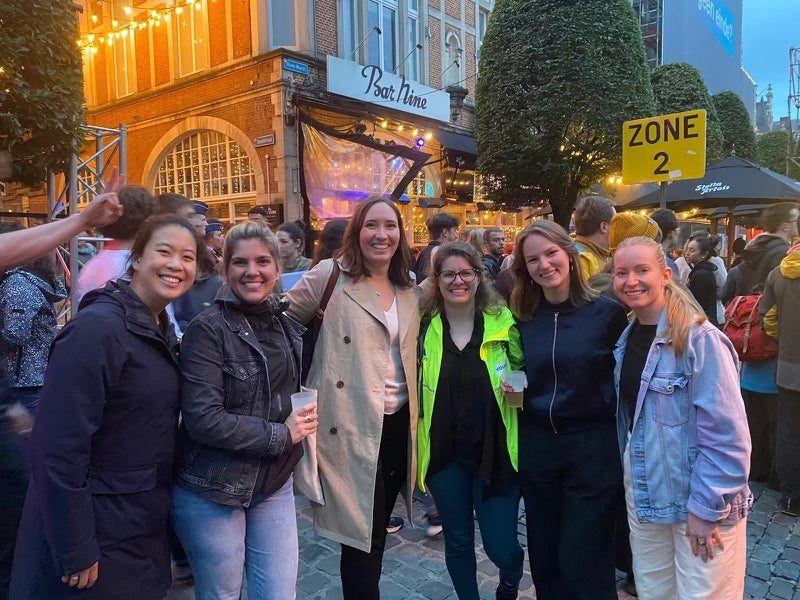
Fioriti with colleagues from IMBES conference
Fioriti has used this training in her Ph.D. program in several ways, from analysis methods and regressions to intuiting how to handle data. She notes that the program gave her a safe space to practice – and mess up – in a structured way, and also helped her not be afraid of it. It also bolstered her professional communications skills.
“When you’re comparing science life and academia to corporate life, they’re very different. There’s a different language and cultural patterns in how people interact. McCourt was my first experience learning how people who are not scientists interact and communicate with one another. That’s been helpful in not isolating me in the science bubble and aiding in understanding how people are going to interpret what I’m doing.”
This fall, Fioriti will begin her fourth year of the Ph.D. in Psychology program at Georgetown. She looks forward to teaching her first seminar, Memory and Humanity, for undergraduate seniors in the Department of Psychology.
“It will go through the different memory systems: how they work, looking at research, and how those systems and their function contribute to our overall sense of self,” says Fioriti.
It’s inspired by concepts she learned from her favorite course at Georgetown – Neurophilosophy with Adam Green – and philosophy courses she took in undergrad at Catholic University. She gave a couple examples of questions that might be considered in the course: How much of ourselves rely on memory? If we were to lose function of one of our memory systems, would we still be the same person?
Because her lab is wrapping up the first round of data collection on a new project, she’s also excited to be diving into neuro-analysis research this fall.
Fioriti encourages anyone interested in this field to keep trying. “Don’t be afraid to switch courses. I have gone through a lot of different sub-topics of psychology, starting with clinical, and now I do neuro and physiological analyses on people who are learning math.”
The pivot points, for her, were scary at the time, making her question all the work she put into one thing. In the end, though, she says that, “Everything that you have pursued in the past will be beneficial to your pursuits in the future. Do what makes you feel good, happy and interested.”
Connect with Cynthia Fioriti on LinkedIn.
